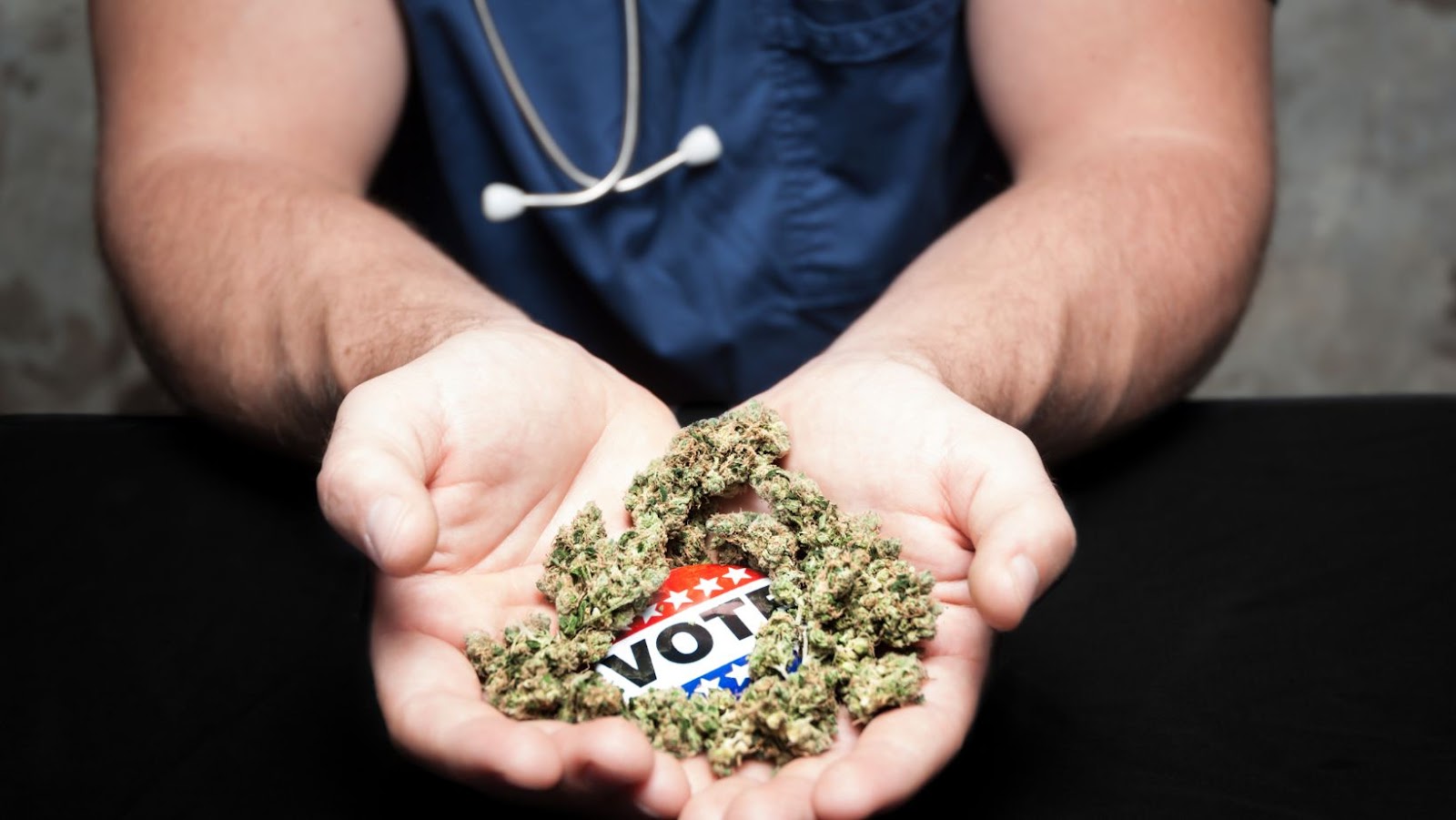Exploring The Connection Between Nutrition And Addiction Recovery

Building a sober life isn’t just about abstinence from drugs and alcohol. It’s also about establishing a healthy lifestyle that promotes physical, mental, and emotional well-being. The effects of substance abuse affect every part of life, and each has to heal in order to build a strong recovery. This includes managing eating habits during the active phase of addiction.
Healthy eating habits play a crucial role in repairing the damage caused by chronic use of substances. A balanced diet provides all the essential elements the body needs in the form of carbohydrates, protein, fat, vitamins, and minerals.
This post will guide you in exploring the link between nutrition and addiction recovery. If you or a loved one needs help, visit Jackson House or other similar platforms for consultation.
How Addiction Disrupts Nutrition
Everything you eat has a profound effect on your overall health and well-being. It can either make or break your body in many ways—and substance abuse is no different. Substance abuse disrupts the body’s normal functioning and can lead to a variety of nutritional deficiencies and health problems. Understanding the specific effects of addiction on nutrition is crucial for developing effective treatment strategies and promoting recovery.
Here are some common effects of addiction on nutrition:
Poor Appetite And Malnutrition
Many substances, such as stimulants and opioids, can suppress appetite, reducing food intake and inadequate nutrition. You may prioritize obtaining and using drugs over meeting your basic nutritional needs, resulting in malnutrition. This can lead to a weakened immune system, muscle wasting, fatigue, and impaired cognitive function.
Imbalanced Diet
Substance abuse often disrupts normal eating patterns, leading to unhealthy food choices. You may opt for quick, convenient, and highly processed foods instead of nutritious options. This can result in an imbalanced diet lacking essential vitamins, minerals, and other vital nutrients necessary for overall health.
Nutritional Deficiencies
Substance abuse can lead to nutritional deficiencies. It’s because the body doesn’t properly absorb some nutrients during addiction. For example, alcohol abuse can impair the absorption and utilization of B vitamins, leading to deficiencies. Opioid use can cause vitamin D deficiency.
Moreover, certain SUD medications can also cause a deficiency of particular nutrients like magnesium. These inadequacies can have various adverse effects on the body, including weakened immune function, impaired cognition, and increased risk of chronic diseases. That’s why healthcare professionals recommend taking nutrition supplement as an addition to your healthy and balanced diet.
Gastrointestinal Issues
Substance abuse can damage the gastrointestinal tract, leading to digestive problems such as nausea, vomiting, diarrhea, and constipation. Such issues can further impact food intake and nutrient absorption, exacerbating nutritional deficiencies. Inflammation and damage to the gut lining can also hinder nutrient absorption, leading to malabsorption issues.
Weight Fluctuations
Substance abuse can result in significant weight fluctuations. Some individuals may lose or gain weight in an unexplained manner. Excessive opioid consumption can cause changes to an individual’s metabolism, resulting in weight loss. Keep in mind that it can also result from reduced appetite and inadequate food intake. On the other hand, others may gain weight rapidly due to certain SUD medications that can affect the release of hormones responsible for hunger and fullness. Both weight loss and weight gain can have detrimental effects on overall health and well-being.
Increased Risk Of Eating Disorders
Individuals with addiction are at a higher risk of developing eating disorders, such as anorexia nervosa, bulimia nervosa, or binge eating disorder. These co-occurring disorders further complicate the nutritional status of individuals in addiction recovery and require specialized treatment approaches.
Constipation
Constipation typically occurs from a diet that lacks fiber and fluids. Fiber is essential for maintaining a healthy digestive system and regulating regular bowel movements. On the other hand, fluids help soften your poo and make it easier to pass. Individuals with addiction may take certain medications and not be motivated to exercise, worsening constipation.
Dehydration
Withdrawal from substance abuse can induce diarrhea, vomiting, and fever. This can lead to dehydration, especially if left ignored. You should also refrain from drinking excessive amounts of caffeine because it can result in or worsen dehydration.
Poor Oral Health
Substance abuse, particularly excessive opioid consumption, may prevent your salivary glands from producing adequate amounts of saliva. This bodily fluid is essential for preventing tooth decay and gum infection. Therefore, a lack of saliva may exacerbate oral health issues. Oral health issues like missing teeth, tooth misalignment, and infections can make chewing more difficult. These often result in an increased consumption of processed foods.
How Nutrients Affect The Body
To understand the connection between nutrition and addiction recovery, you also need to understand the roles nutrients play in the body.
Here are the groups of essential nutrients:
Vitamins
Experts believe that humans need 13 essential vitamins to maintain a healthy body. These are categorized as water and fat-soluble. Water-soluble vitamins are a group of vitamins that dissolve in water and are easily absorbed into the bloodstream. They’re excreted through urine if not used. These vitamins include:
- Vitamin C (Ascorbic Acid)
- B Vitamins, which include B12 (cobalamin), B7 (biotin), B6 (pyridoxine), B5 (pantothenic acid), B3 (niacin), B2 (riboflavin), and B1 (thiamin)
On the other hand, fat-soluble vitamins, as their name implies, are soluble in fat and are absorbed along with dietary fat in the small intestine. They can be stored in the liver and body’s fatty tissues for later use. These vitamins include:
- Vitamin A
- Vitamin D
- Vitamin E
- Vitamin K
These essential vitamins support the immune system, develop strong teeth and bones, facilitate calcium absorption, and promote protein metabolism. This is why they’re crucial in addiction recovery.
Minerals
Aside from vitamins, another essential micronutrient is minerals. Minerals are categorized into two divisions: major and trace. Major minerals include calcium, magnesium, potassium, phosphorus, sulfur, and sodium. These minerals help maintain adequate water levels and healthy hair and bones.
On the other hand, trace minerals include chromium, fluoride, iodine, iron, manganese, selenium, zinc, copper, and molybdenum. These help promote healthy blood pressure, proper blood clotting, a strong immune system, and oxygen transfer.
Protein
Protein is one of the three essential macronutrients the body needs. Although it’s often associated with muscle growth, protein has a place in every cell in the body, from your skin to your bones. Protein primarily consists of more than 20 amino acids. Most can be synthesized by the body, but some can only be acquired from food.
Fat
Fat is another essential macronutrient known for having had a bad rap in the past few decades. Why? Because it’s often associated with chronic health problems, such as heart disease, diabetes, and weight gain. However, it’s vital to understand that not all fat should be treated with disgrace.
There are two types of fat: saturated and unsaturated. Between these two, the latter is the healthy fat, while the former isn’t. Unsaturated fat, such as mono- and polyunsaturated fat, is essential for the following:
- Blood clotting
- Healthy hormone production
- Muscle function
- Immune function
- Micronutrient absorption
- Brain function
- Blood sugar regulation
Unsaturated fat can be absorbed from food, such as fatty fish (e.g., salmon, tuna), nuts (e.g., almonds), avocado, and healthy oils (e.g., grapeseed, sunflower, olive).
Carbohydrates
Carbohydrates are the primary energy source of the body and are known for being a target of every diet fad. However, they’re essential in maintaining a healthy and functional brain and central nervous system. They’re so vital that experts recommend around 45-60% of daily caloric intake should come from carbohydrates.
The Role Of Nutrition In Addiction
Here are several key aspects of the role of nutrition in addiction:
Nutrient Deficiencies And Imbalances
Substance abuse can lead to nutrient deficiencies and imbalances in the body. Drugs and alcohol can interfere with the absorption, metabolism, and utilization of essential nutrients, including vitamins, minerals, amino acids, and fatty acids.
These deficiencies can harm both physical and mental health, leading to weakened immune function, impaired cognitive function, mood disorders, and other health complications. Therefore, proper nutrition is essential to replenish these depleted nutrients and restore balance in the body.
Impact On Brain Chemistry
Nutrition plays a critical role in regulating brain activity. Substance abuse can disrupt the delicate balance of neurotransmitters—chemical messengers promoting mood regulation, stress management, and overall brain function.
Nutrients such as amino acids, B vitamins, and omega-3 fatty acids can help produce and regulate neurotransmitters. With their help, you can balance your brain chemistry and improve your mental well-being during addiction recovery.
Cravings And Relapse Prevention
Addiction can alter the reward system in the brain, leading to intense cravings for drugs or alcohol. If not addressed accordingly, things may get worse. Furthermore, nutritional deficiencies can exacerbate these cravings as the body seeks to fulfill its needs through substance use.
That’s why it’s important to fill your body with all the nutrients it needs during addiction recovery. Stable blood sugar levels, a balanced intake of macronutrients, and proper hydration can all contribute to managing cravings and maintaining sobriety.
Physical Health And Healing
Substance abuse can take a toll on physical health, leading to various health issues. These may include liver damage, cardiovascular problems, gastrointestinal disorders, and compromised immune function. This is why proper nutrition is essential. The nutrients from healthy food sources may help support organ function, tissue repair, and the immune system. By providing the body with the necessary nutrients, you’ll be able to enhance your physical health, increase your energy levels, and reduce your risk of complications.
Stress Reduction And Emotional Well-Being
Addiction is often associated with high levels of stress, anxiety, and depression. Proper nutrition can play a role in reducing stress and supporting emotional well-being. Nutrients such as omega-3 fatty acids, magnesium, and B vitamins have been linked to improved mood and stress. Furthermore, a well-balanced diet may help support mental health and provide the body with the resources it needs to cope with stress effectively.
What To Eat During Addiction Recovery
Nutrition programs allow individuals with addiction to:
- Cook and eat foods in a healthy way
- Learn the importance of a healthy diet
- Understand how proper nutrition can support the recovery process
Here’s a list of food that may help your body heal during addiction recovery:
Poultry And Fish
Substance abuse prevents the body from processing tyrosine, which is an essential amino acid that produces neurotransmitters like dopamine. This can lead to poor mood and cognition. In that case, you’ll need more protein from healthy sources like poultry and fish. Adding these options to your diet may help boost your mood, enhance your mental clarity, and improve your overall well-being.
Bananas And Other Good Sources Of Potassium
Bananas can help your body heal while recovering from substance abuse. Aside from being a convenient snack, they’re also a good source of tryptophan, an essential amino acid that promotes healthy serotonin levels for a good night’s sleep. While bananas are rich in potassium, they’re also high in vitamins C and B6. Potassium plays a crucial role in addiction recovery, considering many individuals with substance abuse disorders don’t have sufficient potassium levels.
Berries And Vegetables
Are you fond of eating berries? If you do, that’s great! Blueberries and the like contain high amounts of antioxidants, which are crucial in strengthening the immune system and its many functions. On top of that, antioxidants can help reduce, prevent, and slow down cellular damage from the free radicals created by addiction.
On the other hand, vegetables provide various nutrients your body needs during recovery, such as vitamins, minerals, and fiber. A diet with a wide range of vegetables can help restore proper nutrition in your body. Look for leafy greens like kale, cruciferous vegetables like potatoes, and starchy vegetables like potatoes to promote recovery.
Final Words
While addiction recovery is a complex journey, the connection between nutrition and the recovery process isn’t something to underestimate. A nutrient-dense diet is vital in supporting physical and mental health, balancing neurotransmitters, managing cravings, and promoting overall well-being.
By prioritizing nutrition as part of an integrated treatment approach, you can increase your chances of achieving lasting sobriety and enjoying a healthier, more fulfilling life. Remember, seeking professional guidance and support is crucial throughout recovery to ensure individualized nutritional needs are met.






